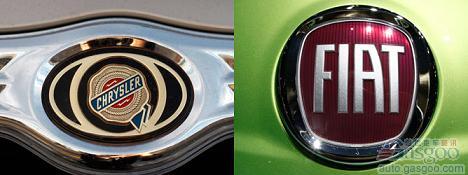
The source disclosed that it is expected that President Barack Obama will visit Chrysler’s Toledo plant in Ohio this Friday (June 3rd). At that time, Obama will announce an agreement with Fiat Auto. Fiat will pay more than $500 million to acquire Chrysler's shares in the hands of the U.S. Department of the Treasury.
It is understood that Fiat currently holds a 46% stake in Chrysler, once the completion of the acquisition of the United States Ministry of Finance in the hands of 6% of the shares, the former on the latter will reach absolute shareholding ratio. A U.S. Treasury spokesman declined to comment on the above report.
Fiat Motor Co. once said in a statement that it has notified the US Treasury Department of its intention to purchase. The company will implement the option to purchase 6% of Chrysler’s shares in the US government’s hands, and the transaction may be completed by the end of the year.
On May 24th, Chrysler repaid $7.6 billion in loans from the U.S. and Canadian governments, which allowed Fiat Auto to buy shares of Chrysler with a general-purpose fund purchase. On that day, Fiat Auto's $1.3 billion in cash was repaid to the U.S. and Canadian governments. Fiat is relying on this $1.3 billion fund to obtain a 16% stake in Chrysler.
Cobalt-based alloy powders are commonly used in plasma transfer arc welding (PTAW) due to their excellent high-temperature properties and resistance to wear and corrosion. These alloys are typically composed of cobalt as the base metal, with various alloying elements such as chromium, tungsten, nickel, and carbon added to enhance specific properties.
The use of cobalt-based alloy powders in PTAW offers several advantages, including:
1. High-temperature strength: Cobalt-based alloys exhibit excellent strength and resistance to deformation at elevated temperatures, making them suitable for welding applications that involve high heat.
2. Wear resistance: These alloys have a high hardness and resistance to wear, making them ideal for welding applications where the welded parts are subjected to abrasive or erosive conditions.
3. Corrosion resistance: Cobalt-based alloys offer good resistance to corrosion, making them suitable for welding applications in aggressive environments, such as those involving chemicals or saltwater.
4. Thermal conductivity: Cobalt-based alloys have good thermal conductivity, allowing for efficient heat transfer during welding and reducing the risk of heat-affected zone (HAZ) defects.
5. Compatibility with other materials: Cobalt-based alloys can be easily welded to a wide range of base metals, including stainless steels, nickel alloys, and other cobalt-based alloys, providing versatility in welding applications.
To use cobalt-based alloy powders for PTAW, the powder is typically fed into the plasma arc using a powder feeder. The powder is then melted by the high-temperature plasma arc and deposited onto the workpiece, forming a weld bead. The specific welding parameters, such as arc current, travel speed, and powder feed rate, will depend on the specific alloy and application requirements.
It is important to note that the selection of the cobalt-based alloy powder should be based on the specific welding application and the desired properties of the final weld. Different cobalt-based a
Co Powder,Cobalt 6 Powder,Cobalt 12 Powder,Cobalt 21 Powder
Luoyang Golden Egret Geotools Co., Ltd , https://www.xtchvaf.com